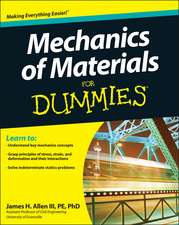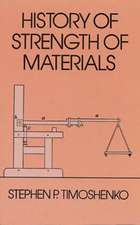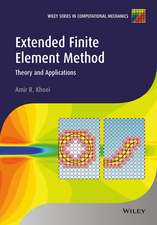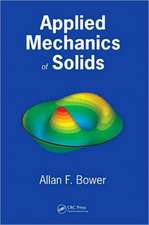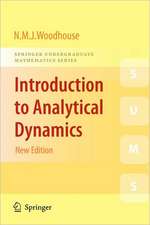FEM for Springs
Editat de Masayoshi Shimoseki Toshio Kuwabara Editat de Toshio Hamano, Toshiyuki Imaizumien Limba Engleză Paperback – 6 dec 2010
| Toate formatele și edițiile | Preț | Express |
|---|---|---|
| Paperback (1) | 942.31 lei 6-8 săpt. | |
| Springer Berlin, Heidelberg – 6 dec 2010 | 942.31 lei 6-8 săpt. | |
| Hardback (1) | 946.87 lei 6-8 săpt. | |
| Springer Berlin, Heidelberg – 21 ian 2003 | 946.87 lei 6-8 săpt. |
Preț: 942.31 lei
Preț vechi: 1149.16 lei
-18% Nou
Puncte Express: 1413
Preț estimativ în valută:
180.31€ • 188.64$ • 149.79£
180.31€ • 188.64$ • 149.79£
Carte tipărită la comandă
Livrare economică 03-17 aprilie
Preluare comenzi: 021 569.72.76
Specificații
ISBN-13: 9783642055058
ISBN-10: 3642055052
Pagini: 252
Ilustrații: XIV, 234 p.
Dimensiuni: 155 x 235 x 13 mm
Greutate: 0.35 kg
Ediția:Softcover reprint of hardcover 1st ed. 2003
Editura: Springer Berlin, Heidelberg
Colecția Springer
Locul publicării:Berlin, Heidelberg, Germany
ISBN-10: 3642055052
Pagini: 252
Ilustrații: XIV, 234 p.
Dimensiuni: 155 x 235 x 13 mm
Greutate: 0.35 kg
Ediția:Softcover reprint of hardcover 1st ed. 2003
Editura: Springer Berlin, Heidelberg
Colecția Springer
Locul publicării:Berlin, Heidelberg, Germany
Public țintă
ResearchDescriere
The Japanese original edition of "FEM for Springs" was published in 1997, to com memorate the 50th anniversary of Japan Society for Spring Research (JSSR). While there have been many books published about Finite Element Method (FEM), this book was among the first to address the application of FEM to spring design. When asked about springs, one might imagine a mere shape of helical coil. How ever, there are many more varieties of shapes and functions in the application of springs. Consequently, some are very difficult to calculate by design formula. FEM gives the solutions to those advanced engineering cases. Nowadays, it is strongly desired to have a design method for springs as a com mon base from a global point of view. Under these circumstances, JSSR planned to publish an English version of "FEM for Springs". By improving the contents and adding many examples, this book, FEM for Springs, has been brought to comple tion. It is a truly significant event. I am confident that this book is suitable for engineers in worldwide industrial sectors and for college students as well.
Cuprins
1 Springs and Elastic Component.- 2 Outline of Finite Element Method (FEM).- 3 Role of FEM in Spring Analysis.- 4 Classification and Application of Element.- 5 Elementary Analysis.- 6 Expansion of Analytical Handling.
Textul de pe ultima copertă
While there are many books about Finite Element Methods, this is among the first volume devoted to the application of FEM in spring design. It has been compiled by the working group on Finite Element Analysis of Springs, sponsored by the Japan Society of Spring Research. The monograph considers the wide spectrum of spring shapes and functions, enabling readers to use FEM to optimize designs for even the most advanced engineering cases. It provides the theoretical background and state-of-the-art methodologies for numerical spring analysis. It also employs and explains many real-world design examples, calculated by commercial software and then compared with experimental data, to illustrate the applicability of FEM to spring analysis. Engineers already dealing with spring design will find this an excellent means of learning how to use FEM in their work, while others will find here a helpful introduction to modern spring technology and design.
Caracteristici
Only profound treatment of this technically difficult subject
Written by experts of the Japan Society for Spring Research, an organization closely cooperating with Spring manufacturers
Includes supplementary material: sn.pub/extras
Written by experts of the Japan Society for Spring Research, an organization closely cooperating with Spring manufacturers
Includes supplementary material: sn.pub/extras


